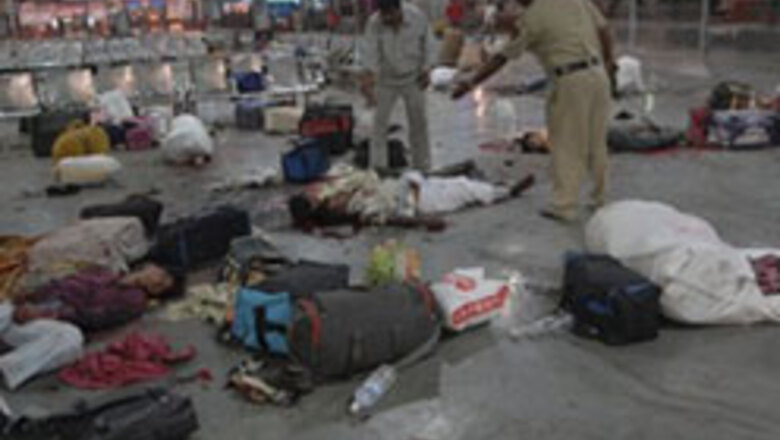
views
New York: India's ruling United Progressive Alliance (UPA) has done little to launch an effective fight against terrorism and may "pay a price for its incompetence" in the elections next year, the Wall Street Journal said in its lead editorial on Friday.
"A lack of political leadership is to blame," The Wall Street Journal said as India's financial capital continued to battle terrorists who had struck in 10 places in the city Wednesday.
The Mumbai terror attacks, in which at least 125 people have been killed, have been covered extensively in both the print and online edition of this New York-based daily financial newspaper.
"It (the ruling party) may pay a price for its incompetence at the national polls next year," the newspaper said.
"Yesterday Prime Minister Manmohan Singh promised that 'every perpetrator would pay the price'. Yet his Congress Party has done little more than bicker with its coalition allies over the past five years on how best to fight terrorism," the journal said.
Observing that the attacks are a reminder that India is at the top of the terror target list, the newspaper said this is because India is an easy target.
Not only are its intelligence units understaffed and lack resources, coordination among State police forces is also poor. "The country's anti-terror legal architecture is also inadequate; there is no preventive detention law, and prosecutions can take years," it said.
"Wednesday's attacks should arouse Indians to better confront the terror threat, while reminding all democracies how dangerous that threat still is," it said.
In another opinion piece published by The Journal, author Sadanand Dhume blamed the Congress for scrapping the anti-terror law POTA. "On taking office in 2004, one of the first acts of the ruling Congress Party was to scrap a federal antiterrorism law that strengthened witness protection and enhanced police powers," he wrote.
"The Congress Party has stalled similar state-level legislation in Gujarat, which is ruled by the opposition Hindu-nationalist Bharatiya Janata Party. And it was a Congress government that kowtowed to fundamentalist pressure and made India the first country to ban Mumbai-born Salman Rushdie's 'Satanic Verses' in 1988," he said.
Dhume, a Washington-based writer and author of "My Friend the Fanatic: Travels with an Indonesian Islamist", said the Indian approach to terrorism has been consistently haphazard and weak-kneed.


















Comments
0 comment